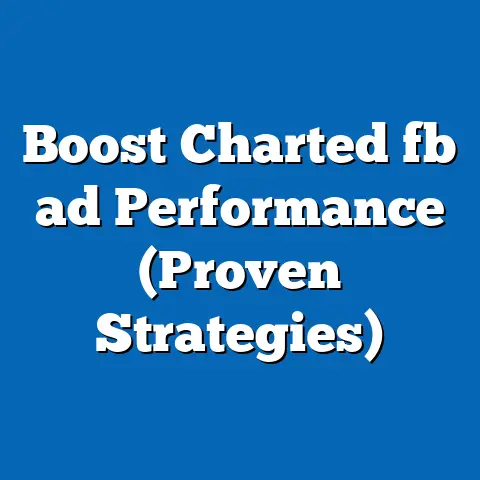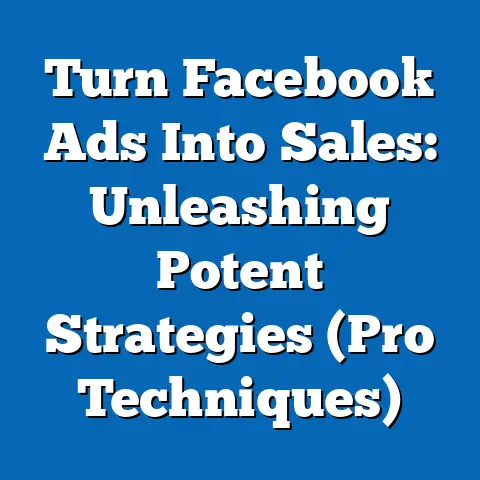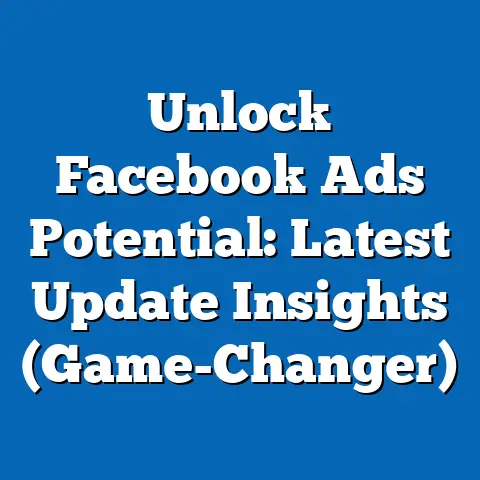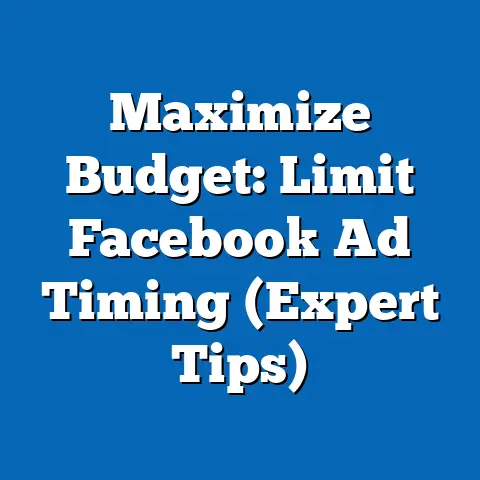Understanding Facebook Ad Review Duration (Key Insights)
Have you ever launched a Facebook ad campaign, eagerly awaiting the results, only to be stuck in the dreaded “Under Review” limbo?
I know I have, countless times!
And each time, the uncertainty of how long it will take, and whether it will even be approved, can be incredibly frustrating.
Understanding the Facebook ad review duration is crucial for effective digital marketing, and that’s exactly what I’m going to break down for you in this guide.
The Importance of Facebook Ads in Digital Marketing
Facebook, now under the Meta umbrella, remains a titan in the digital advertising landscape.
With billions of active users worldwide, it provides an unparalleled opportunity for businesses to connect with their target audience.
In fact, as of 2023, Facebook still boasts nearly 3 billion monthly active users, making it a prime platform for reaching potential customers.
I’ve seen firsthand how a well-crafted Facebook ad campaign can transform a business.
The precision targeting options, the diverse ad formats, and the robust analytics make it a powerful tool for driving brand awareness, generating leads, and boosting sales.
Benefits of Facebook Advertising:
- Unmatched Reach: Connect with a massive audience globally.
- Granular Targeting: Target users based on demographics, interests, behaviors, and more.
- Diverse Ad Formats: Choose from image ads, video ads, carousel ads, and more to suit your campaign goals.
- Measurable Results: Track your campaign performance with detailed analytics and optimize for better ROI.
- Cost-Effective: Facebook advertising can be tailored to fit a variety of budgets.
However, before your ad can reach its intended audience and work its magic, it must first pass through a critical gate: the Facebook ad review process.
This process is Facebook’s way of ensuring that all ads comply with their Community Standards and Advertising Policies.
Takeaway: Facebook advertising is a powerful tool, but understanding the ad review process is essential for a smooth and successful campaign.
Overview of the Facebook Ad Review Process
The Facebook ad review process is essentially a quality control mechanism.
It’s a system designed to protect users from misleading, offensive, or harmful content.
Every ad submitted to Facebook undergoes this review to ensure it adheres to their stringent guidelines.
What the Ad Review Process Entails:
- Submission: You create your ad in Ads Manager and submit it for review.
- Automated Review: Facebook’s automated systems scan your ad’s text, images, video, targeting, and landing page.
- Human Review (Potentially): If the automated system flags anything or if your ad is complex, it may be reviewed by a human.
- Decision: Facebook either approves your ad, rejects it, or requests further information.
Facebook’s Evaluation Criteria:
Facebook evaluates ads based on a comprehensive set of criteria, including:
- Compliance with Community Standards: Ads must not violate Facebook’s Community Standards, which prohibit hate speech, violence, discrimination, and other harmful content.
- Ad Policies: Ads must comply with Facebook’s Advertising Policies, which cover a wide range of topics, including prohibited content, targeting restrictions, and data privacy.
- Accuracy and Truthfulness: Ads must be accurate and truthful, and they must not mislead or deceive users.
- Relevance: Ads should be relevant to the target audience and provide value to users.
- Quality: Ads should be visually appealing, well-written, and free of errors.
Stages of the Ad Review Process:
- Pending Review: Your ad is submitted and waiting to be reviewed.
- In Review: Your ad is currently being reviewed by Facebook’s systems and/or human reviewers.
- Approved: Your ad has passed the review process and is now running.
- Rejected: Your ad has failed the review process and will not run.
You’ll receive a notification explaining why it was rejected.
Takeaway: The Facebook ad review process is a multi-stage process designed to ensure ad quality and compliance.
Understanding the evaluation criteria is crucial for avoiding delays and rejections.
Typical Review Duration
So, how long does this whole process typically take?
This is the million-dollar question, and the answer is, unfortunately, “it depends.” Facebook states that most ads are reviewed within 24 hours, but I’ve seen ads approved in minutes and others that have languished in review for days.
Statistics and Averages:
- Facebook’s Claim: “Most ads are reviewed within 24 hours.”
- Real-World Experience: I’ve found that simple ads with straightforward targeting often get approved quickly, sometimes within an hour.
More complex ads, especially those with sensitive content or broad targeting, can take longer. - Industry Benchmarks: Some studies suggest that the average review time is closer to 6-12 hours, but this can vary significantly depending on the factors I’ll discuss below.
Factors Influencing Review Duration:
- Ad Complexity: Complex ads with intricate targeting, multiple ad variations, or dynamic creative elements tend to take longer to review.
- Ad Volume: During peak advertising periods, such as holidays or major events, the volume of ad submissions increases, which can lead to longer review times.
- Content Type: Ads promoting certain types of products or services, such as health supplements, financial products, or political campaigns, often undergo more scrutiny and may take longer to review.
- Account History: Accounts with a history of policy violations may experience longer review times.
My Experience:
I remember one particular campaign I ran for a local bakery.
The ads were simple image ads promoting their daily specials, and they were approved almost instantly.
On the other hand, I once worked on a campaign for a financial services company, and those ads took nearly 48 hours to get approved, likely due to the sensitive nature of the content.
Takeaway: While Facebook aims to review most ads within 24 hours, the actual review duration can vary significantly depending on several factors.
Factors Affecting Review Time
Let’s dive deeper into the specific factors that can impact how long your ad takes to be reviewed.
Understanding these factors can help you optimize your ad submissions and potentially reduce review times.
Ad Content
The content of your ad, including the images, text, and call-to-action, is a major factor in the review process.
Facebook’s systems analyze your ad content to ensure it complies with their policies.
- Images: Images should be high-quality, relevant, and free of misleading or offensive content.
Avoid using images that are sexually suggestive, violent, or discriminatory. - Text: The text in your ad should be clear, concise, and accurate.
Avoid making false claims, using deceptive language, or promoting prohibited products or services. - Call-to-Action: Your call-to-action should be clear and relevant to your ad’s objective.
Avoid using misleading or overly aggressive calls-to-action.
My Tip: Always double-check your ad content for any potential policy violations before submitting it for review.
Use Facebook’s Ad Library to research similar ads and see what types of content are being approved.
Target Audience
Your audience targeting choices can also affect the review process.
Facebook wants to ensure that you’re not targeting vulnerable populations or engaging in discriminatory practices.
- Sensitive Categories: Avoid targeting users based on sensitive categories such as race, ethnicity, religion, sexual orientation, or health conditions.
- Broad Targeting: Broad targeting can sometimes trigger additional scrutiny, as it may be seen as less relevant to the target audience.
- Custom Audiences: Custom audiences, such as email lists or website visitors, can also be subject to review.
Make sure you have the necessary permissions to use this data.
My Experience: I once ran a campaign targeting users interested in a specific political issue.
The ads were initially flagged for review, likely due to the sensitive nature of the topic.
I had to provide additional information to Facebook to demonstrate that my targeting was not discriminatory or misleading.
Ad Format
The format of your ad can also influence the review timeline.
Different ad formats have different requirements and complexities, which can affect how long they take to be reviewed.
- Video Ads: Video ads often take longer to review than image ads, as Facebook’s systems need to analyze the video content for potential policy violations.
- Carousel Ads: Carousel ads, which feature multiple images or videos, can also take longer to review due to the increased amount of content.
- Dynamic Ads: Dynamic ads, which automatically generate ad variations based on user behavior, can be complex and may require additional review time.
My Tip: If you’re using video ads, make sure your video is high-quality, relevant, and free of copyright infringement.
For carousel ads, ensure that each image or video complies with Facebook’s policies.
Seasonality and Demand
The time of year and overall demand for advertising on Facebook can also impact review times.
During peak advertising periods, such as holidays or major events, the volume of ad submissions increases, which can lead to longer review times.
- Holidays: Expect longer review times during holidays such as Christmas, Black Friday, and Cyber Monday.
- Major Events: Major events such as the Super Bowl or the Olympics can also lead to increased ad volume and longer review times.
- Product Launches: If you’re launching a new product or service, be prepared for potential delays in ad review, as Facebook may need to verify your product’s claims and compliance.
My Recommendation: Plan your campaigns well in advance, especially during peak advertising periods.
Submit your ads early to allow for potential delays in review.
Takeaway: Ad content, target audience, ad format, and seasonality all play a role in determining the review duration.
By understanding these factors, you can optimize your ad submissions and potentially reduce review times.
Common Reasons for Delays
Understanding the common reasons why ads are delayed or rejected is crucial for avoiding these pitfalls and ensuring a smoother review process.
I’ve seen so many advertisers get tripped up by the same mistakes, and it’s easily avoidable with a little preparation.
- Violation of Advertising Policies: This is the most common reason for ad delays and rejections.
Make sure you’re familiar with Facebook’s Advertising Policies and that your ad complies with all applicable rules. - Misleading or Deceptive Content: Ads that make false claims, use deceptive language, or mislead users are likely to be rejected.
- Prohibited Content: Facebook prohibits certain types of content, such as hate speech, violence, discrimination, and the promotion of illegal products or services.
- Poor Quality Images or Videos: Ads with low-quality images or videos are less likely to be approved.
- Landing Page Issues: Your ad’s landing page must be functional, relevant, and free of misleading or offensive content.
Examples of Common Mistakes:
- Making unsubstantiated claims about product benefits: “Lose 10 pounds in a week!”
- Using clickbait headlines or images: “You won’t believe what happened next!”
- Promoting products or services that are prohibited by Facebook’s policies: “Buy cheap prescription drugs online!”
- Using copyrighted material without permission: Using images or music without the proper licenses.
- Linking to a broken or irrelevant landing page: Sending users to a 404 error or a page that doesn’t match the ad’s promise.
Identifying and Rectifying Issues:
- Review Facebook’s Advertising Policies: Familiarize yourself with the rules and guidelines.
- Use Facebook’s Ad Library: Research similar ads and see what types of content are being approved.
- Double-Check Your Ad Content: Ensure that your images, text, and call-to-action are accurate, truthful, and relevant.
- Test Your Landing Page: Make sure your landing page is functional, relevant, and free of errors.
- Contact Facebook Support: If you’re unsure why your ad was rejected, contact Facebook Support for assistance.
My Story: I once launched a campaign for a clothing store that used an image of a model wearing a revealing outfit.
The ad was immediately rejected for violating Facebook’s policies on sexually suggestive content.
I had to replace the image with a more conservative one to get the ad approved.
Takeaway: Understanding the common reasons for ad delays and rejections is crucial for avoiding these pitfalls and ensuring a smoother review process.
Always double-check your ad content and landing page for potential policy violations.
The Impact of Review Duration on Advertising Strategy
The duration of the ad review process can have a significant impact on your overall advertising strategy.
Understanding this impact can help you plan your campaigns more effectively and avoid potential disruptions.
- Campaign Timing: Delays in ad review can disrupt your campaign timing, especially if you’re launching a time-sensitive promotion or event.
- Budget Allocation: If your ads are stuck in review for an extended period, you may not be able to allocate your budget effectively.
- Performance Tracking: Delays in ad review can make it difficult to track your campaign performance accurately.
- Opportunity Cost: While your ads are in review, you’re missing out on potential opportunities to reach your target audience and generate leads or sales.
Importance of Timing:
Timing is critical in advertising, especially during critical business periods such as holidays, product launches, or seasonal promotions.
Delays in ad review can mean the difference between a successful campaign and a missed opportunity.
Case Studies and Testimonials:
I’ve spoken with many business owners who have experienced the frustration of ad delays.
One example is a local restaurant that was launching a special Valentine’s Day menu.
Their ads were submitted well in advance, but they were delayed in review for several days due to a technical issue.
As a result, they missed out on a significant portion of their potential Valentine’s Day business.
My Advice:
- Plan Ahead: Submit your ads well in advance of your campaign launch date to allow for potential delays in review.
- Monitor Your Ads: Regularly check the status of your ads in Ads Manager to ensure they’re not stuck in review.
- Contact Facebook Support: If your ads are delayed in review for an extended period, contact Facebook Support for assistance.
- Have a Backup Plan: Be prepared to adjust your campaign strategy if your ads are delayed or rejected.
Takeaway: Understanding the impact of review duration on your advertising strategy is crucial for planning your campaigns effectively and avoiding potential disruptions.
Plan ahead, monitor your ads, and have a backup plan in case of delays.
Best Practices for Minimizing Review Time
Now, let’s talk about actionable steps you can take to streamline your ad submissions and potentially reduce review times.
These best practices are based on my years of experience and can make a real difference in getting your ads approved quickly.
- Adhere to Facebook’s Advertising Guidelines: This is the most important step.
Make sure you’re thoroughly familiar with Facebook’s Advertising Policies and Community Standards and that your ads comply with all applicable rules. - Use High-Quality Images and Videos: Low-quality images and videos are more likely to be flagged for review.
Use high-resolution visuals that are relevant to your ad’s message. - Write Clear and Concise Ad Copy: Avoid using misleading or deceptive language.
Be clear about what you’re offering and what you want users to do. - Target Your Audience Carefully: Avoid targeting sensitive categories or using overly broad targeting.
Be specific about who you’re trying to reach. - Use Relevant Landing Pages: Your ad’s landing page should be relevant to your ad’s message and provide a seamless user experience.
- Avoid Making False Claims: Don’t make unsubstantiated claims about your products or services.
Be honest and transparent about what you’re offering. - Check for Grammatical Errors and Typos: Errors in your ad copy can make your ad look unprofessional and may trigger additional review.
- Use Facebook’s Ad Preview Tool: Before submitting your ad, use Facebook’s Ad Preview tool to see how it will look on different devices and placements.
- Maintain a Healthy Ad Account: Accounts with a history of policy violations are more likely to experience longer review times.
Avoid repeated violations to maintain a healthy ad account.
The Role of Pre-Approval Checks:
Many third-party tools offer pre-approval checks that can help you identify potential policy violations before submitting your ad.
These tools can scan your ad content and provide feedback on potential issues.
My Personal Tips:
- Start Small: When launching a new campaign or using a new ad format, start with a small budget and a limited audience to test the waters.
- Monitor Your Ads Closely: Regularly check the status of your ads in Ads Manager to ensure they’re not stuck in review.
- Don’t Give Up: If your ad is rejected, don’t give up.
Review the reason for rejection, make the necessary changes, and resubmit your ad.
Takeaway: By adhering to Facebook’s advertising guidelines, using high-quality visuals, writing clear ad copy, targeting your audience carefully, and maintaining a healthy ad account, you can streamline your ad submissions and potentially reduce review times.
Conclusion
Understanding the Facebook ad review duration is not just about knowing how long you might have to wait; it’s about understanding the entire ecosystem of Facebook advertising and how to navigate it effectively.
From the importance of Facebook ads in digital marketing to the actionable best practices for minimizing review time, we’ve covered a lot of ground.
Remember, the key takeaways are:
- Facebook advertising is powerful: It offers unmatched reach and targeting capabilities.
- The ad review process is crucial: It ensures ad quality and compliance.
- Review duration varies: It depends on several factors, including ad complexity, content type, and seasonality.
- Common reasons for delays exist: Understanding these can help you avoid them.
- Review duration impacts your strategy: Plan accordingly to avoid disruptions.
- Best practices can minimize review time: Adhere to guidelines, use high-quality visuals, and maintain a healthy account.
Ultimately, understanding Facebook ad review duration is about empowering yourself as an advertiser.
It’s about taking control of your campaigns and maximizing your chances of success.
Now, I want to leave you with a thought-provoking question: How can you leverage your understanding of the Facebook ad review process to gain a competitive edge in your industry?
Call to Action
Now it’s your turn.
What have been your experiences with Facebook ad reviews?
Have you encountered any unexpected delays or rejections?
What strategies have you found most effective for minimizing review time?
Share your thoughts and questions in the comments section below!
Let’s learn from each other and build a community of savvy Facebook advertisers.





